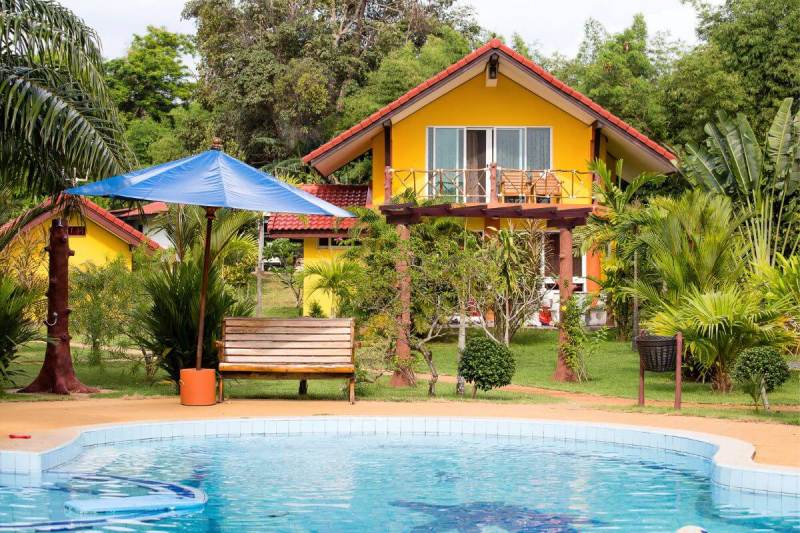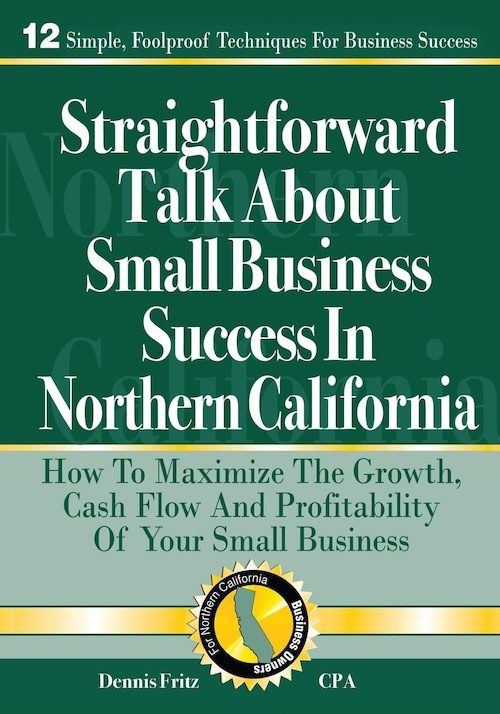
We’re already a week into June. Which means we’re almost halfway through 2024. (!)
So let’s take a minute to reflect on changes that may have already occurred in half a year: getting married, having babies, retiring, buying a vacation rental (more on this today), and so on. Make sure you’re accounting for how those changes will affect your tax situation. It’s harder to save money on these things if you’re only dealing with them reactively during tax filing season.
And yes, you can try to figure out those moves on your own, but as my Redding clients have experienced first-hand, I’ve got plenty of tax strategies in mind to help you pay less taxes. Make some time to chat with me — it’ll be worth it.
Now that school’s out and temps are warmer, summer vacation is probably on your mind… and on a lot of other people’s minds as well. If you own a vacation home, you could be making some money on renting the place out to people looking for a hotel alternative. Now while this means reporting additional income, this also means you have access to rental property tax write-offs come tax filing time.
But I’ve seen some Shasta County vacation rental owners make mistakes and miss out on some things tax-wise. So, let me give you a little breakdown of how it works and how you can save with Uncle Sam…
Dennis Fritz CPA’s Guide to Mastering Rental Property Tax Write-Offs
“Travel makes one modest. You see what a tiny space you occupy in the world.” -Gustav Flaubert
Here’s something I’d like you to imagine: pristine beaches, the rhythmic sound of waves lapping the shore, and a healthy chunk of your 2024 tax burden magically disappearing. Sounds like a dream, right?
Turning a vacation house into a rental property is a fantastic way to make additional income, but with that comes tax obligations. And Uncle Sam wants a piece of the vacation rental pie too. So before you list that property on VRBO, let’s explore some ways to minimize your tax liability on that vacation property by looking at rental property tax write-offs you can claim.
First, you want to take this number to heart: 14 days…
If you only rent your vacation home for 14 days or less this year, you can’t take advantage of any rental property tax write-offs. On the other hand, the IRS doesn’t require you to report rental income for that two-week period on your tax returns either.
This is a great opportunity if you’re not quite ready to go full-fledged landlord. Let it be a trial run for turning it into a rental property next year.
If you do go over the 14-day period when renting, then the game changes. The IRS will expect you to report the income. But that also means you get the ability to take advantage of rental property tax write-offs.
What you can claim depends on if you use it exclusively as a rental property or you decide to both enjoy it and rent it.
Renting exclusively
When you do finally decide to become the host with the most, you can deduct things like mortgage interest, property taxes, operating expenses (including maintenance, repairs, utilities, and insurance), depreciation (deduct a portion of the property’s cost over several years), and fees you paid to advertise the listing. You can even write off what you paid the property manager to keep the place clean and well-stocked.
If you use a vacation rental service like VRBO or Airbnb, they’ll usually charge a service fee to their paying customers. They’ll send you as the host a 1099 form which includes the amount of service fees accrued in addition to rental income for the year. You can deduct the host service fees.
Decide to offer towels, toiletries, and ten-dollar bottles of wine to greet your guests upon arrival — these are all rental property tax write-offs too (though this will move you into the self-employment category because it will now be classified as running a business — and that brings a whole other set of tax requirements with it).
Note: If you want to use your vacation rental for personal use, just keep it to 14 days or less (or 10 percent of the total rental days — whichever is greater). If you go beyond that, the vacation rental will be considered a mixed-use vacation rental and that means deductions change.
Mixed-use vacation rental
If you want more access to your second property while also keeping it as a revenue source, rental property tax write-offs become a bit more limited. When a property isn’t exclusively used as a business, it means the government isn’t willing to give you as much off your taxes.
1. Expense allocation: Expenses must be divided based on the number of days the property is used for each purpose. For example, if you use your vacation home for personal purposes for 30 days and rent it out for 90 days, you can only deduct 75 percent of the expenses as rental expenses.
2. Gross rental income limitation: Your deductible rental expenses cannot exceed your gross rental income minus the rental portion of mortgage interest, real estate taxes, and certain other expenses. But… excess expenses can be carried forward to future years.
Just make sure to record everything … in detail.
Whether that vacation property is for mixed-use or solely for rental purposes, you’ll want to keep detailed notes and records of the days you rent out the space and the amenities you provide. The more detailed you are at keeping records for this “bed and breakfast” business, the less you need to worry about scrounging up proof for the IRS.
Important to note: You must fill out a W-9 form that most vacation rental sites require at the beginning of operation. If you don’t, you are subject to losing 28 percent of your rental income.
In your quest to make a little extra income this year and serve travelers from all over, let us remind you that life is more than earning 5-star reviews … it’s mostly about walking into a room with hot coffee and clean sheets. We trust you’ll make that happen. 🙂
I’ve helped plenty of Shasta County people apply the available deductions in the most tax-advantageous way possible. And I can do the same for you.
Keep more money in your pocket,
Dennis Fritz



